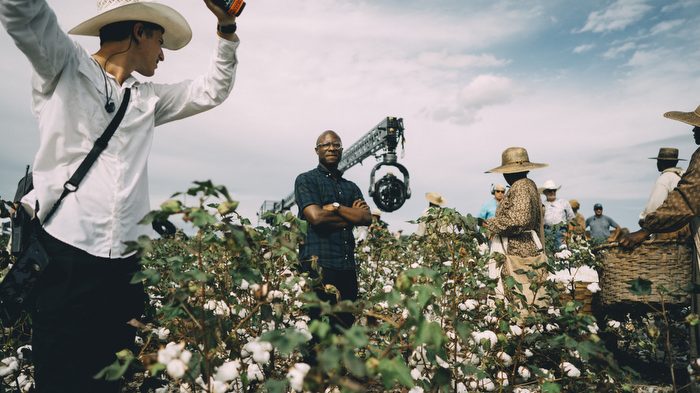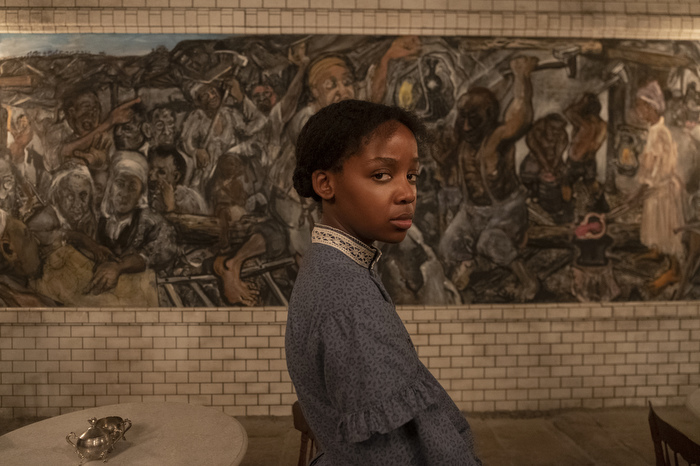

Despite—or perhaps because of—the year we’ve spent reckoning with our country’s history of deeply ingrained racism, Barry Jenkins thinks audiences are ready for his new limited series The Underground Railroad. “I wouldn’t have made it if I didn’t feel like the audience was ready for it,” the Academy Award nominated director told journalists at Amazon’s recent virtual press conference.
Based on Colson Whitehead’s Pulitzer Prize winning 2017 novel, the series re-imagines an antebellum America in which the network of secret routes and safe houses used by enslaved Black people to escape to freedom as an actual subterranean railroad. The story follows a young woman named Cora (Thuso Mbedu) as she flees a Georgia plantation and travels north via the fantastical rails.
Jenkins seemed to want to emphasize that the show isn’t simply a spectacle of suffering. Only about an hour and a half of the 10 one-hour episodes actually take place on a plantation, he pointed out. “You watch the show and there’s this version where…you assume for 10 episodes Cora is trying to vanquish the condition of American slavery,” Jenkins explained. “But what she’s really after is—she’s trying to reconcile this sense of abandonment she feels toward her mother.”
Still, he acknowledged that The Underground Railroad traffics in imagery that may be difficult for people to sit through. That’s why Jenkins wanted to adapt the novel for TV rather than film “When you go to a movie theater it’s a very captive experience,” the Moonlight director explained. “I wanted the audience to have the opportunity—you can pause, you can skip, you can choose whom you wanna watch this with or whether you wanna watch it alone.”
Equally as important to Jenkins was capturing the wonder that the Underground Railroad represents in the Black imagination. To do this, the filmmaker said he reached back to his childhood perception of what the Underground Railroad meant. “I remember the first time I heard the phrase…I saw Black people on trains underground,” he recalled. “As a child…you just don’t have those filters that—this thing is impossible, these people can’t, or that thing didn’t. None of it. So, I heard it and I went, Of course we built trains underground!”

Jenkins was adamant that the production use real tracks, real trains and real tunnels. They found a real private rail network in Georgia and built the tunnels around them. The result was at times overwhelming for the cast. “Everything was bigger than anything I could have imagined,” Mbedu said. “I actually snuck away just to step back and take in everything. I couldn’t believe everything that I was seeing.”
The director conceded that his unflinching series may, in turn, be overwhelming for some to watch. But, he said, that’s fine too. “I think the thing what’s really beautiful about putting images into the world is that when someone’s ready to find that image, it will be there.”














